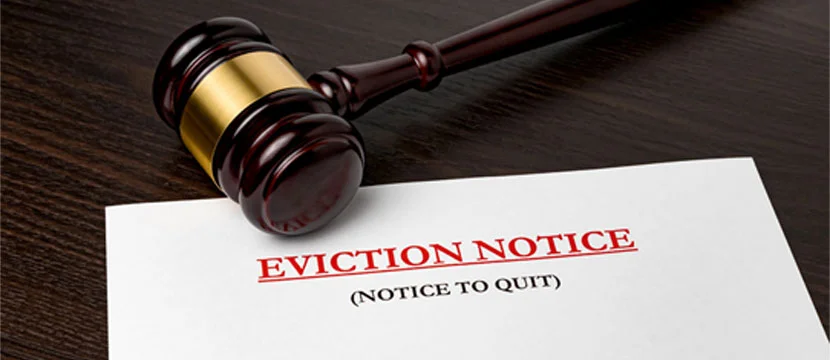Owning a rental property in Killingly, Connecticut, is no easy task. As landlords themselves, the team at the Law Office of Andrea L. Truppa, LLC, understands just how difficult it can be to deal with the challenges that come along with renting a residential property. When a tenant fails to pay rent or violates the terms of their lease, you might need to start the eviction process, and a Killingly landlord evictions lawyer can help.
Experienced Landlord Eviction Representation
At the Law Office of Andrea L. Truppa, LLC, we have over 25 years of legal experience and are ready to put that experience to use in your eviction case. We understand how challenging some tenants can be and are here to protect your rights as a property owner. It is vital, in these situations, to ensure you are doing everything by the book so that the eviction process goes smoothly and you achieve the outcome you desire.
Legal Reasons for Evicting a Tenant in Killingly, CT
Owning rental property can be rewarding. It also, unfortunately, can come with its fair share of challenges. When a tenant violates the terms of their lease agreement, or engages in disruptive behavior, seeking an eviction might be your only legal way forward. However, Connecticut law requires that landlords have a valid reason—also known as legal cause—before pursuing an eviction through the courts.
Contact Andrea L. Truppa
Call Now
Some of the most common reasons to evict a tenant are:
- Nonpayment of rent. The number one reason for seeking the eviction of a tenant is when that tenant fails to pay the rent they owe. While financial hardship can affect anyone, property owners still have the right to enforce the terms of a lease and recover possession of the rental unit if rent consistently goes unpaid.
- Violent or criminal behavior. If a tenant engages in violent conduct or criminal activity on the property, this may be grounds for eviction. These cases are especially sensitive, and it’s important to act both promptly and within the boundaries of Connecticut law.
- Property damage. When a tenant causes significant or repeated damage to the unit beyond what would be considered normal wear and tear, you may have grounds for eviction. Clear communication and thorough documentation are important in these types of cases.
- Lease violations. A tenant who breaches key terms—such as housing unauthorized pets or guests—of a lease may be subject to eviction. Lease violations can also include smoking in a non-smoking property or violating established quiet hours.
- Health and safety issues. If you believe the tenant at your rental property is taking part in behaviors that could be viewed as threats to public health and safety, you may be able to seek an eviction. One common example of this includes a tenant letting trash pile up around their housing unit to the point where it becomes a hazard to those around them.
At the Law Office of Andrea L. Truppa, LLC, we understand that pursuing an eviction is never an easy decision, especially in cases where a financial issue has caused the renter to become unable to pay rent. While we recognize that eviction may feel like a last resort, it is sometimes the only effective way to resolve an ongoing issue.
In some situations, however, it becomes necessary to protect your property and uphold the terms of your lease. Our office is here to provide experienced, respectful guidance to help you move forward with confidence.
FAQs
Q: Do You Need a Lawyer to Help With an Eviction?
A: While you are not legally required to hire a lawyer to help you with an eviction in Connecticut, working with an attorney can make the process more effective. A lawyer can help ensure all notices and filings follow state law and provide advice on how to document the issue or present your case in court, if necessary.
Q: How Much Notice Does a Landlord Have to Give a Tenant When Raising Rent in CT?
A: In Connecticut, a landlord cannot raise rent during the term of a written lease. If the lease is month-to-month or does not specify how much notice is required, the landlord generally must wait until the lease ends or renews before making changes to the rental amount. While not legally required, providing at least 30 days’ notice is considered appropriate and in good faith.
Q: How Long Can an Eviction Take in CT?
A: It usually takes several weeks to process an eviction in full in Connecticut. However, there are certain factors that can make the process take much longer, such as the court’s availability and the availability of evidence you have to show cause for the eviction. If your renter seeks legal representation, this could also cause the process to take longer.
Q: What Is the Process for an Eviction in CT?
A: When you seek an eviction in Connecticut, the overall process tends to follow a specific pattern. First, you must serve a notice to quit to the tenant, which needs to be followed by a necessary summons and complaint, served in accordance with state law. It is important to have legal representation through every step to ensure you are following Connecticut eviction law.
Having Issues With a Tenant? Speak to Our Landlord Lawyer Today
At the Law Office of Andrea L. Truppa, LLC, we are here to provide landlords with the highest quality legal representation when it comes to evicting a tenant from your rental property. We understand these matters are often time-sensitive and can be emotionally taxing—especially when you’re trying to protect your investment and maintain a safe environment for those around the property.
If you’re facing a tenant dispute or need to begin the eviction process, we are here to help. Whether you’re dealing with a lease violation, unpaid rent, or concerns regarding health and safety, our team is prepared to walk you through the process step by step. We service landlords throughout Killingly and Windham County. Contact our offices today for more information.




